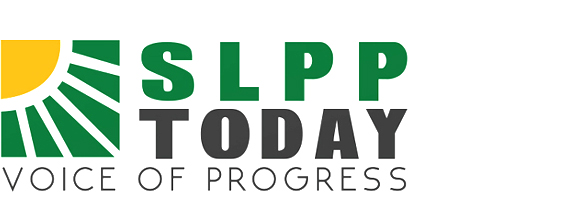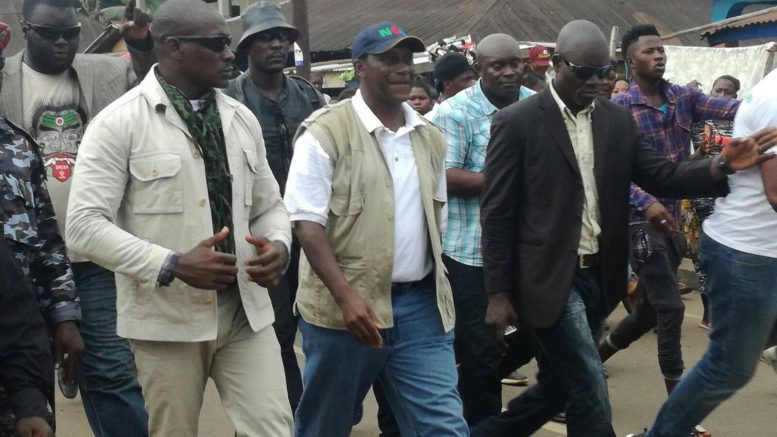KANDEH YUMKELLAH HEADS A JIHADISTS MOVEMENT IN SIERRA LEONE SAYS CHERNOH ALPHA M. BAH.
I have asked the NGC leadership and membership to show the people of Sierra Leone what makes them a “progressive force” and to point out the so-called “progressives” among their ranks. They have failed to do so.
The people of Sierra Leone are fed-up with the excruciating pain, economic hardship, and political disaster that the government of Ernest Bai Koroma and his kleptomaniac gang of rogue politicians have inflicted on the country. If there is one thing that we are all united in, as pro-democratic forces in the country, it is the removal of the Koroma regime from power.
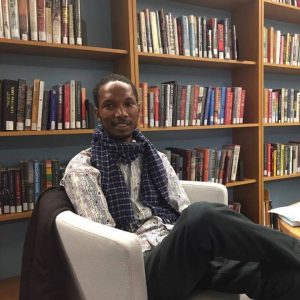
By Chernoh Alpha M. Bah
For the past ten years, we have resisted the political corruption, ruling party cooptation, and the rising dictatorship of the All People’s Congress (APC) and its leadership. There is no question that a vote for Samura Kamara, the APC’s appointed candidate, will mean a continuation of the gangster-style politics of the Koroma regime.
I start with these comments to reemphasize my decade-old position of ongoing resistance against Koroma’s policy of impunity and the APC’s efforts to overthrow democracy. I want my stance on Koroma to be clear as I continue the discussion which I initiated during the last few days of 2017. In that debate, I criticized the newly formed National Grand Coalition’s claims that they represent a new and progressive party which can save Sierra Leone from decades of poverty and corruption.
I first commented on the NGC following the appointment of Andrew Keili, a former Sierra Leone People’s Party (SLPP) Presidential Aspirant, as the NGC’s Vice-Presidential candidate for the March 2018 elections. Andrew Keili is a two-time contender for the leadership of the SLPP, just like Kandeh Yumkellah, the former UN employee who is now the NGC presidential candidate. Both Keili and Yumkellah, like many in the NGC, are the product of Sierra Leone’s corrupt political system. Indeed, the NGC leadership has held positions in previous and the current regimes, regimes which stand accused of decades of graft and political incest.
For the past ten years, we have resisted the political corruption, ruling party cooptation, and the rising dictatorship of the All People’s Congress (APC) and its leadership. There is no question that a vote for Samura Kamara, the APC’s appointed candidate, will mean a continuation of the gangster-style politics of the Koroma regime.
Yumkellah was a cabinet member of the Military Regime that ruled Sierra Leone in the 1990s, and it was the military government that backed his appointment to the United Nations Industrial Organization (UNIDO).
When Yumkellah failed to become the SLPP candidate for the upcoming elections, he formed the NGC along with other SLPP and APC members who wanted but did not get power within their parties.
It is ironic, then, that the NGC is positioning itself as a “new political group” with no ties to the old parties. What’s more, this breakaway faction of political elites has spread their propaganda across our country, claiming they represent a “new progressive agenda for change,” despite offering no concrete examples of the progressive policies they would supposedly pursue.
The leaders of the NGC are merely disgruntled and alienated politicians from the same two political parties that have dominated our country’s politics for the past fifty years. The formation of the NGC is not about change; it is about an old faction of this country’s corrupt political elite trying to take power for themselves. These elites formed the NGC merely because they failed to garner a nomination from within the APC or the SLPP. Like the rest of the career politicians in this country, their goal is not to change the structure of Sierra Leone’s politics. They just want a piece of the pie for themselves.
As I stated in my original comments, the NGC’s composition and character is an embodiment of the two parties that have ravaged our country since independence. The NGC leadership are merely the excrement of the SLPP and APC. I do not make these accusations lightly.
I have asked the NGC leadership and membership to show the people of Sierra Leone what makes them a “progressive force” and to point out the so-called “progressives” among their ranks. They have failed to do so. I have also reasonably demanded that the NGC points out what in their platform distinguishes them from the parties they aim to replace. But the NGC can neither demonstrate how they are different nor offer any concrete examples of progressive policies in their agenda.
For that reason, NGC members and their supporters have taken offense at my skepticism of the NGC’s composition, character, and political message. They have responded to my critique of the NGC’s nature not with evidence which could prove me wrong, but with a campaign of vitriolic exchanges. If they wish to shut me up, they can just offer up evidence to support the party’s claims. But, as the evidence does not exist, desperate supporters have resorted to an insulting social media brigade against those who would rightly question the declaration of a political party made up of seasoned elites, to obscure the embarrassment of the truth.
INTOLERANT ATTITUDE TO DISSENT
As I have stated elsewhere, the NGC’s intolerant attitude to dissent should be a cause for concern to real progressives
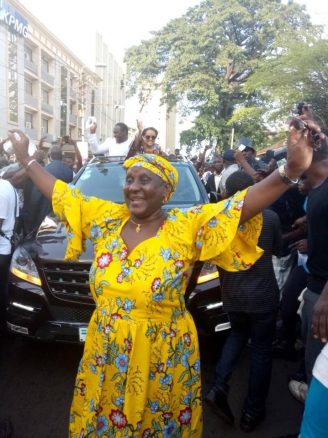
KKY Jihadists Sympathizers
and pro-democratic forces in Sierra Leone. The bigoted mindset of the NGC’s social media brigade represents a jihadist approach to political power. Only those with something to hide fear scrutiny. This sort of aggressive response to measured criticism should be arrested and resisted by all the actual progressive citizens who are concerned about free speech and the safeguard of diverse political opinions in a country long victimized by desperate politicians, including those in the NGC, who see political power as a means of personal aggrandizement.
I have warned and will continue to urge, that if NGC becomes the next government of Sierra Leone, the situation in the country will grow even worse than it is now. The NGC’s insulting and arrogant approach to power is indicative of what a Yumkellah presidency would mean for democracy and free speech in Sierra Leone.
Despite the fact that the NGC continues to vehemently avoid the questions I have raised about their campaign and program, I have decided to keep this discussion to further clarify my earlier comments, with the hope of constructing a road-map to what real change might look like in Sierra Leone. For this reason, it is necessary that I unmask the hypocrisy and fraud of the NGC’s loud message and put the party in the context of the predatory politics from which it was born.
When we ask NGC supporters why Sierra Leoneans must choose the NGC instead of the SLPP or APC, their first and only response is that a former UN employee leads their party, Kandeh Yumkellah. They claim the international community respects him and who they also say has been preaching a message of “hope” and “change” to Sierra Leoneans.
It is evident that the bulk of the NGC’s support and its source of noisy propaganda have mainly come from a scattered and disenfranchised Sierra Leonean diaspora made-up of a few academics and a handful of others who are eager to reintegrate themselves into the ruling elite.
Some of the NGC’s academic and intellectual supporters have written open letters declaring their support for the NGC, arguing that Yumkellah represents the only hope for a better Sierra Leone. These academics have even joined the militant NGC brigade, whose political dialogue consists of shutting-up every Sierra Leonean who refuses to chant the NGC’s newly discovered slogan of change. They continue to dodge the question of whether there is anything outside of Yumkellah’s UN credentials as the former head of the UN Global Energy Campaign which distinguishes him from his peers.
DIFFICULT ROAD AHEAD FOR YUMKELLAH
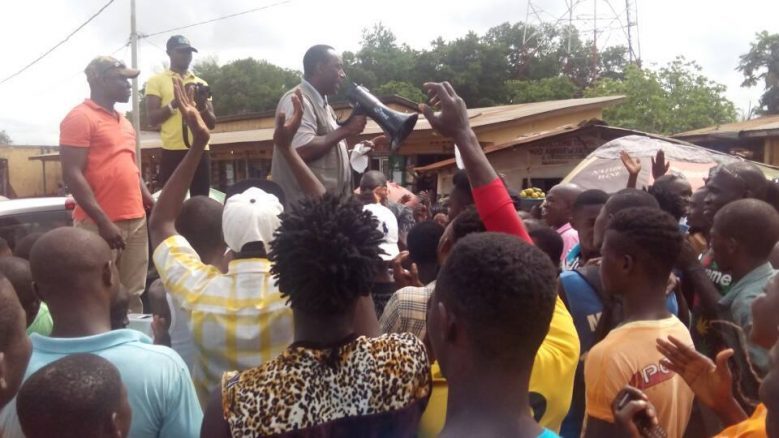 On Monday, July 3, 2017, Yumkellah called a press conference at the Brookfield’s Hotel in Freetown. At the meeting, he announced the suspension of his bid to seek the presidential ticket of the Sierra Leone Peoples Party (SLPP) but said he would vigorously pursue his ambition to become president of the country.
On Monday, July 3, 2017, Yumkellah called a press conference at the Brookfield’s Hotel in Freetown. At the meeting, he announced the suspension of his bid to seek the presidential ticket of the Sierra Leone Peoples Party (SLPP) but said he would vigorously pursue his ambition to become president of the country.
Yumkellah’s road looked difficult.
His campaign to lead the SLPP had been struggling since its formation two years prior: the arrest of two of his close-protection guards on allegations of carrying firearms; his membership status in the SLPP faced questions of irregular registration, and accusations that the Party did not allow him entry into the SLPP headquarters had garnered attention.
Controversy after controversy hampered his campaign.
By July, when it had become clear that he would lose the SLPP nomination, Yumkellah just jumped out of the SLPP leadership race. At the press conference, Yumkellah claimed, “democracy has been choked, suffocated, stifled, and rendered meaningless in the SLPP,” the same political party he had been fighting to lead for the past two years. It is this very political party for which, he says, his father, a founding member, and other family members allegedly received jail time in the 1960s.
He complained that he and his supporters had faced “harassment and violence” in his quest to become the SLPP’s presidential candidate. “There has been a deliberate policy by certain groups in control of the party structures to aggressively exclude any person or group of persons that do not support their candidate,” he told his audience of supporters at the press conference. Yumkellah did not mention this other candidate by name, but it was evident that he was directing his innuendos at only one politician, Mr. Julius Maada Bio. Bio was a retired army officer and the only person who Yumkellah and his supporters knew was a threat to his claiming leadership over the SLPP.
For two years, Yumkellah and the almost ten other aspirants for the presidential ticket of the SLPP had directed their political campaign against Mr. Bio, accusing him of violence and holding the party hostage.
One year ago, they had formed an alliance of aspirants, which excluded Mr. Bio with the principal goal at challenging Bio’s grip on the party. That coalition fell apart a few months later, and Yumkellah, who had put himself forward as its leading architect, knew he would fail to win the SLPP nomination because the rank-and-file of the party will stoutly resist his jihadist approach to leading the SLPP.
But, a few more months later, Yumkellah would galvanize his defeated and demoralized SLPP faction into a political organization named the National Grand Coalition (NGC).
A MEDIA SHOWCASE OF ALIENATED AND DISGRUNTLED POLITICIANS
Since its inception, the NGC has organized a media showcase of alienated and disgruntled politicians from both the APC and SLPP to declare staged support for its program. These media events epitomize the age-old trademark of a bankrupt Sierra Leonean political class always willing to jump ship from the APC to SLPP so long as they benefit. This ancient incestuous style of political declarations makes up the news media’s so-called fast swelling membership of the NGC.
Yumkellah’s entrance into the national politics of Sierra Leone and the noise that accompanied his campaign is unsurprising. He is merely another example of the caustic history of party politics that regionally fragment the country and ethnically balkanize the masses.
In a widely-broadcast radio interview, Kandeh Yumkellah initially told the Sierra Leonean radio journalist David Tam-Baryoh that he was not a registered member of any political party and had never voted in an election in Sierra Leone.
It was shortly before he officially launched his political campaign for the presidential ticket of the SLPP.
Months before the radio interview, Yumkellah had visited Ernest Bai Koroma, the president of Sierra Leone and leader of the ruling party. Those close to Koroma rumored that Yumkellah intended to persuade Koroma to make him his successor and welcome him into the APC. The leadership of the ruling APC was, around this time, surreptitiously scheming to extend Koroma’s stay in power. The APC’s national convention held in 2013 had already coronated Koroma as its chairman for a third consecutive term. The leaders of the APC reportedly opposed Yumkellah’s discussion with Koroma. Yumkellah’s efforts were in vain. It was after this failed meeting with Koroma and attempt to lead the APC that Kandeh Yumkellah finally pointed his political ambition towards the SLPP. But the SLPP, like the rest of the opposition, was already bogged down by factional infighting orchestrated by the Koroma regime ahead of the elections of 2012.
Before this time, an already disgruntled faction was existing within the SLPP. These were the nearly ostracized and made up mostly of elite politicians. Their disaffection comes from a failure to secure party positions for Parliamentary and local council symbols to contest in the SLPP’s heartlands of the south and east during the 2012 elections. They are the ones that had organized into a support group to fuel Kandeh Yumkellah’s ambition for the presidency. The group, which included names like Dr. Martin Gbonda, Ambassador Foday Darboe, Brima Keitta, Isatu Jabbie Kabbah, and Victor Sheriff, was already holding meetings across several locations in western Freetown to pull together a support committee for Yumkellah.
The Yumkellah project then became, for this group, their own 2017 Agenda; a plan hatched solely to prevent the SLPP’s 2012 presidential candidate, Rtd. Brigadier Julius Maada Bio, from contesting the party’s future presidential ticket. These disgruntled politicians, united only by their shared opposition to Mr. Maada Bio, organized themselves into a nucleus from which the Kandeh Kolleh Yumkellah (KKY) Movement would emerge.
HATCHING THE DISGRUNTLED EGG OF THE KKY MOVEMENT
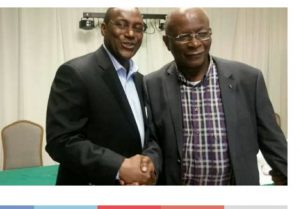 Thus, the KKY Movement, from its embryonic stages, was hatched as a political faction born out of the scattered entrails of the SLPP patched together only by a shared opposition to Mr. Maada Bio.
Thus, the KKY Movement, from its embryonic stages, was hatched as a political faction born out of the scattered entrails of the SLPP patched together only by a shared opposition to Mr. Maada Bio.
It was their hatred towards Bio that coalesced into a platform from which Kandeh Yumkellah was to launch his presidential project. The KKY Movement, its program, and emblematic features – its color, representation, posters, symbols, and organizational structure – hurriedly cast and set-up from the very beginning, was heading in opposing directions to the predominantly prevailing mood of the general mass of the party and its central leadership.
The SLPP, the actual political organization that Yumkellah finally zeroed his plans to contest the elections of 2018 after his failure to gain entry into the APC, entered a new battlefront. Yumkellah and his supporters built their campaign on personal attacks against Bio by identifying and making their ultimate target the overturning of Bio’s presidential ambition.
To achieve their goal, they only recycled the APC’s anti-Bio propaganda campaign of 2012 into their propaganda campaign program. They then launched Kandeh Yumkellah into the politics of the SLPP by pitching his United Nations status against the military record of Julius Maada Bio.
In brandishing Yumkellah as a new political breed, and an unblemished politician representing the only hope for the SLPP, they cast Maada Bio deep into the muddy pit first dugout by the APC during the elections of 2012. They desire that Yumkellah’s United Nations status would be enough to steal Bio’s support among the rank-and-file of the party. But they faced stiff resistance from the overwhelming mass of SLPP supporters. From accusations of irregular membership to suspicions that he was an agent of the APC, the Yumkellah campaign, from the start; was doom to fail. They lurched from one controversy and court petition to another for nearly two years; these litigations jaded the SLPP and crippled the party from functioning as an active opposition.
It was evident that the KKY Movement and Yumkellah plunged themselves and the SLPP into a counterproductive civil war. They became, directly or indirectly, the fratricidal opposition within an already fractured and badly wounded opposition party.
The SLPP, already severely splintered by fiercely competing for internal leadership battles that began ten years earlier in 2005 under the divisive politics of Tejan Kabbah, was now thrown, by the Yumkellah factor, into a seemingly irredeemable predicament.
As each side took on a frenzied media campaign to justify its commitment to the ongoing hostilities within the party, it became apparent that the leadership contest was now becoming a struggle for the very soul of the party. The ruling APC media and propagandists had a field day utilizing much of the Yumkellah propaganda to further dirty the image of the SLPP. The Yumkellah factor and the KKY Movement’s strategy splintered the SLPP. The crumbs from the injured party were then re-constituted into the National Grand Coalition (NGC).
The NGC Party is the initial composition of the political excrements of the SLPP and is now also primarily populated by the disenfranchised and thrown-out political skeletons of the APC.
NGC is merely a group of power-hungry individuals
How then can a party with such a history, composition, and character be regarded as a new political organization in the country? How can the NGC claim it has a program aimed at destroying the legacy of the two-party monopoly that the SLPP and APC have exercised on the political landscape of Sierra Leone when in fact its history, composition, and character replicates the two parties – the Alhassan and Alusine of Sierra Leone politics?
It is evident that the only difference between the NGC and the two old parties is its name. Instead of a platform, the Party points merely to the UN credentials of Yumkellah. Its political program is just a collection of hundreds of KKY photographs and videos. Such does not constitute a progressive party. It does not even represent a Party.
The NGC is merely a group of power-hungry individuals who lack any ideology or ambition beyond taking state power for themselves. The conditions of everyday men, women, and children in Sierra Leone will not improve under the NGC – how could they, when the party cannot even give a concrete example of progressive policy it would implement to bring justice and prosperity to our people.
THE WAY FORWARD IS REAL OBJECTIVE CHANGE FOR A BETTER SIERRA LEONE
That does not mean that all is hopeless. We indeed do have an opportunity for change in Sierra Leone. The objective conditions for change are evident and have been born out of the relentless struggle of pro-democratic forces and real progressives who exist genuinely outside the system of wealthy elites. Sierra Leone needs change without a disgruntled faction of the same class of desperate politicians as head who have plundered out our resources for half a century.
The nature and character of the NGC’s leadership and its jihadist approach to power should tell us that its leaders only seek to exploit our desperate desires for change. They promise to help the people, but in reality, they just aim to empower a small segment of an alienated petit bourgeoisie within our society.
We must vehemently resist the APC’s effort to rig the next elections and secure a de facto third term for Ernest Bai Koroma. At the same time, we must also resist the NGC’s project to fulfill the political agenda of another middle-class faction by opportunistically exploiting the anger of the masses against the establishment.
We cannot replicate the error of American workers and suburban residents who fell victim to the Trump campaign’s anti-establishment rhetoric only to realize that their aspirations for change have just benefited the same higher echelons of American society against the struggling interests of poor working class citizens.
Like the NGC and Yumkellah, Trump exploited the legitimate anger and concern of the poor. With one hand he promised them change, while he picked their pocket with the other. Like the NGC, Trump offered no concrete platform or policies that would provide relief to workers. Because he claimed to be an outsider, the people brought him to power. The result has been a corporate coup by Donald Trump, as he appoints friends, family, and corrupt millionaires to run his cabinets.
We cannot merely trust the words of power-hungry politicians solely because they loudly shout “change” and “progressive” over our heads. We can only believe their actions and their concrete plans for how to improve the lives of the people.
